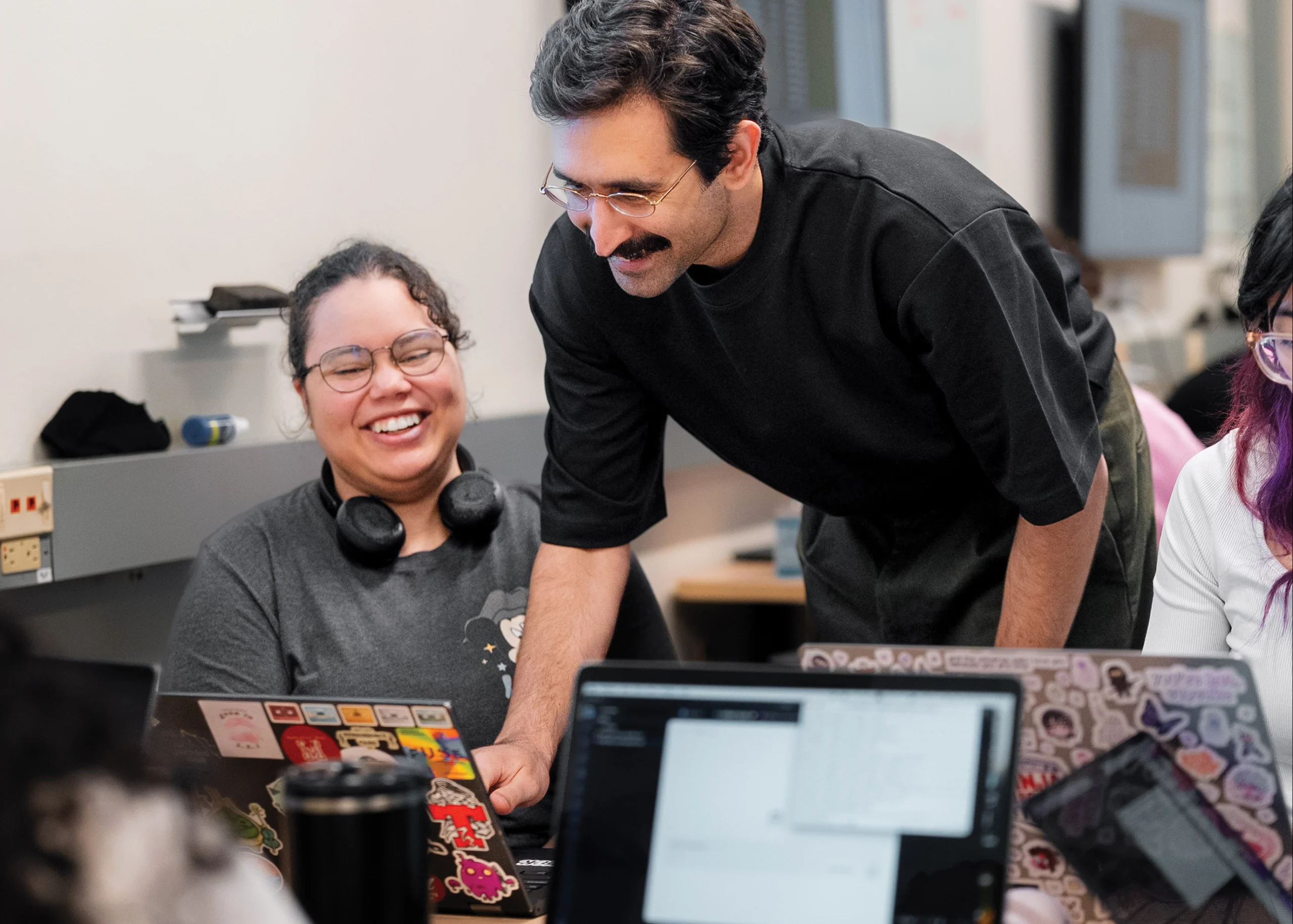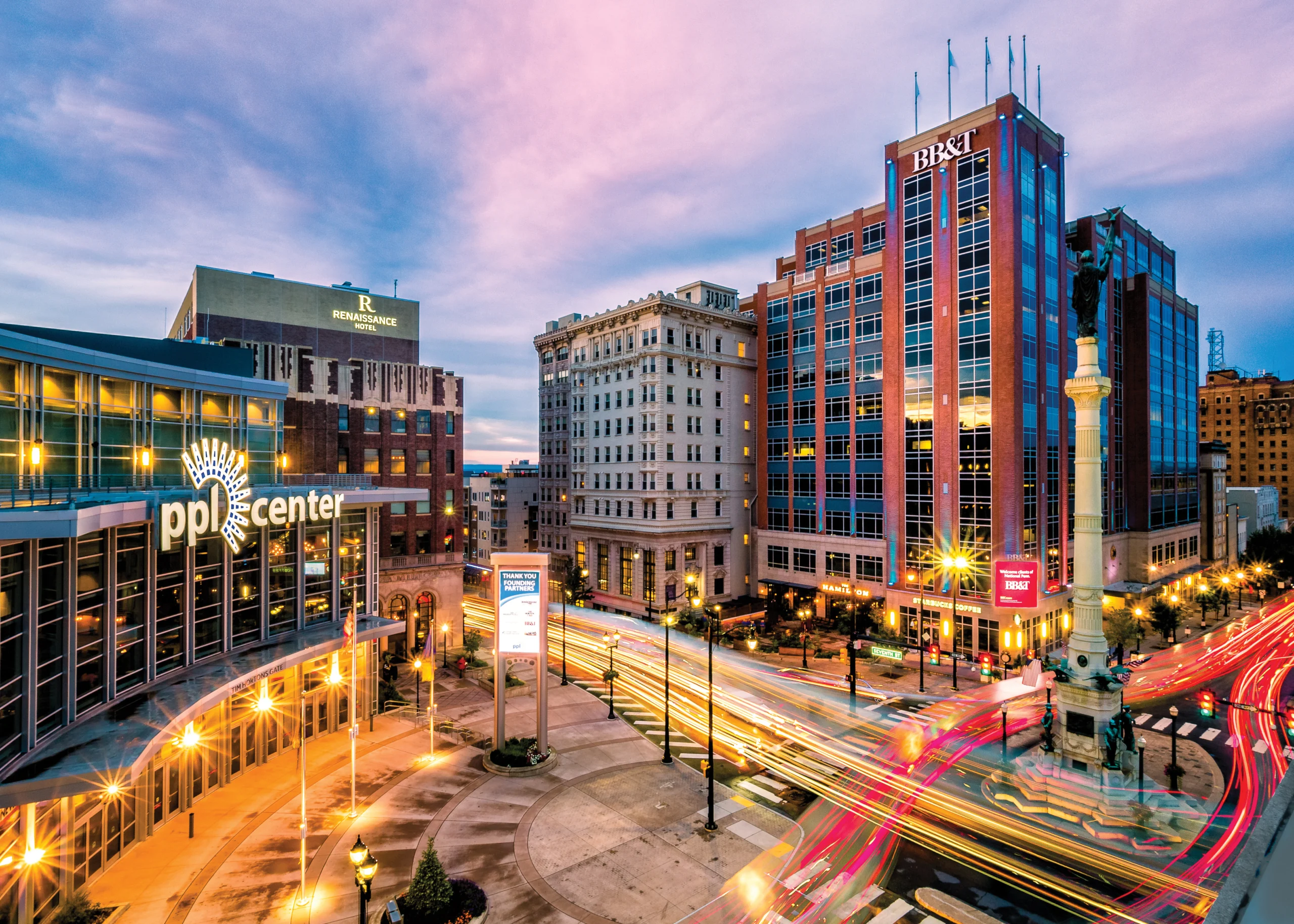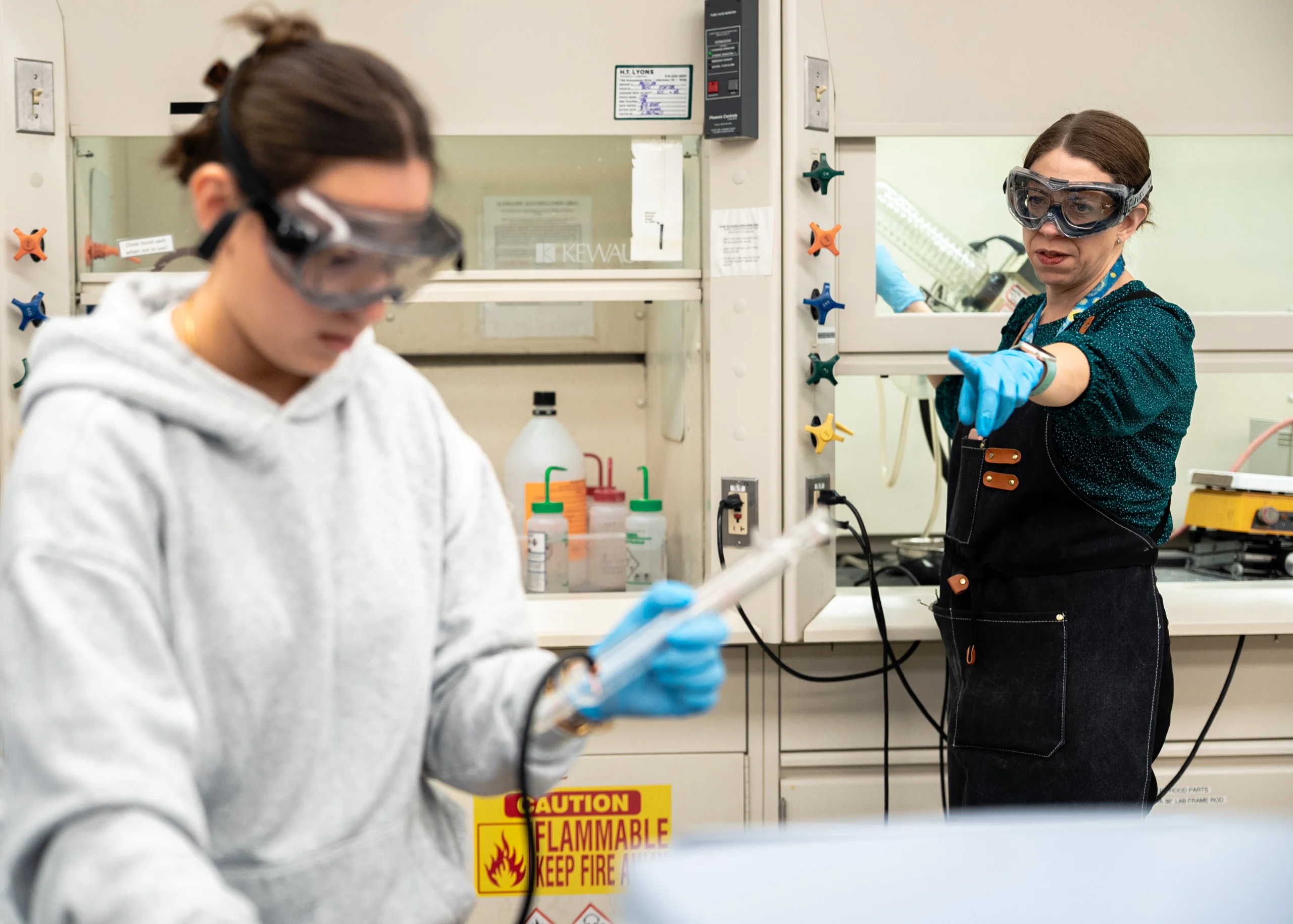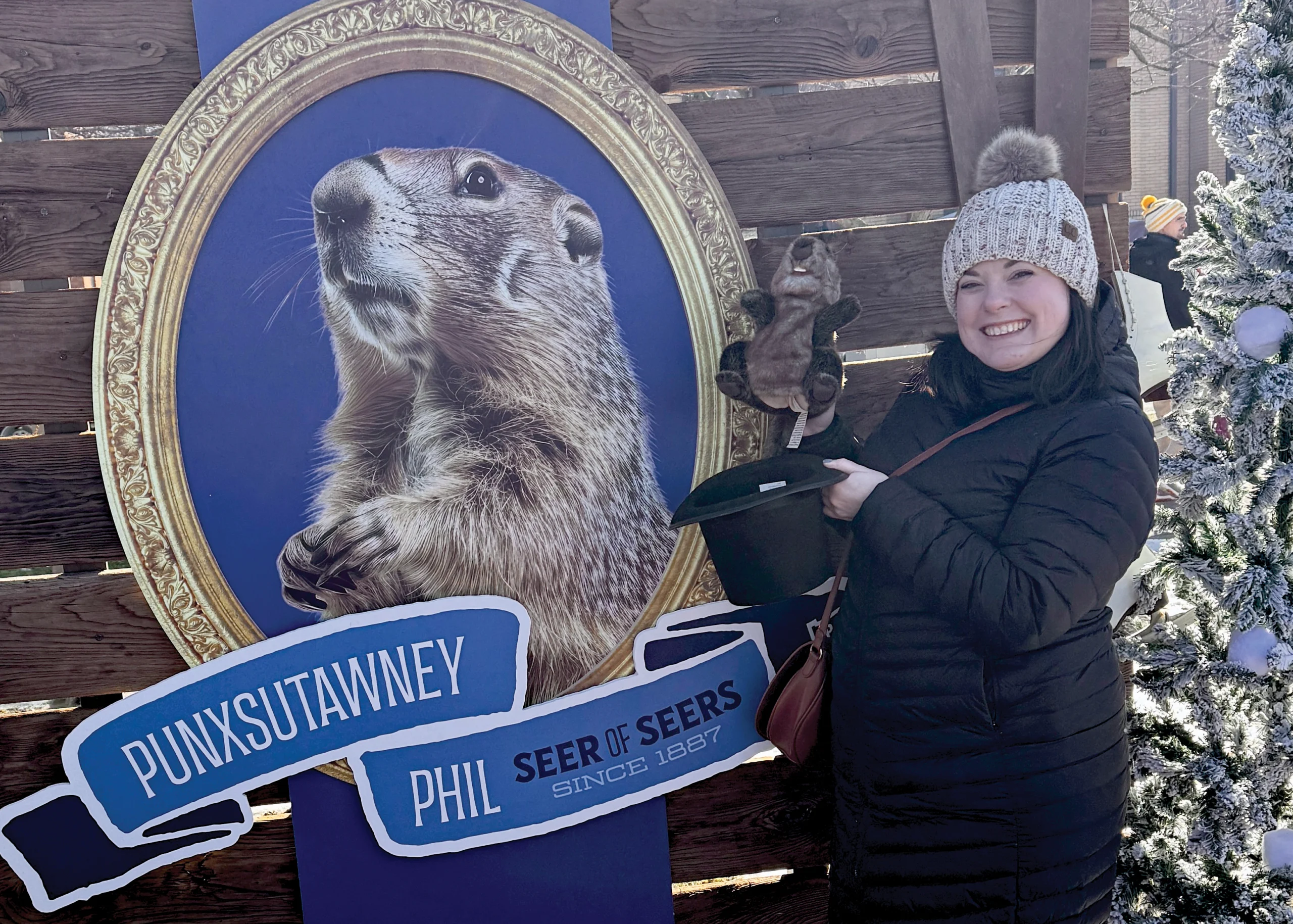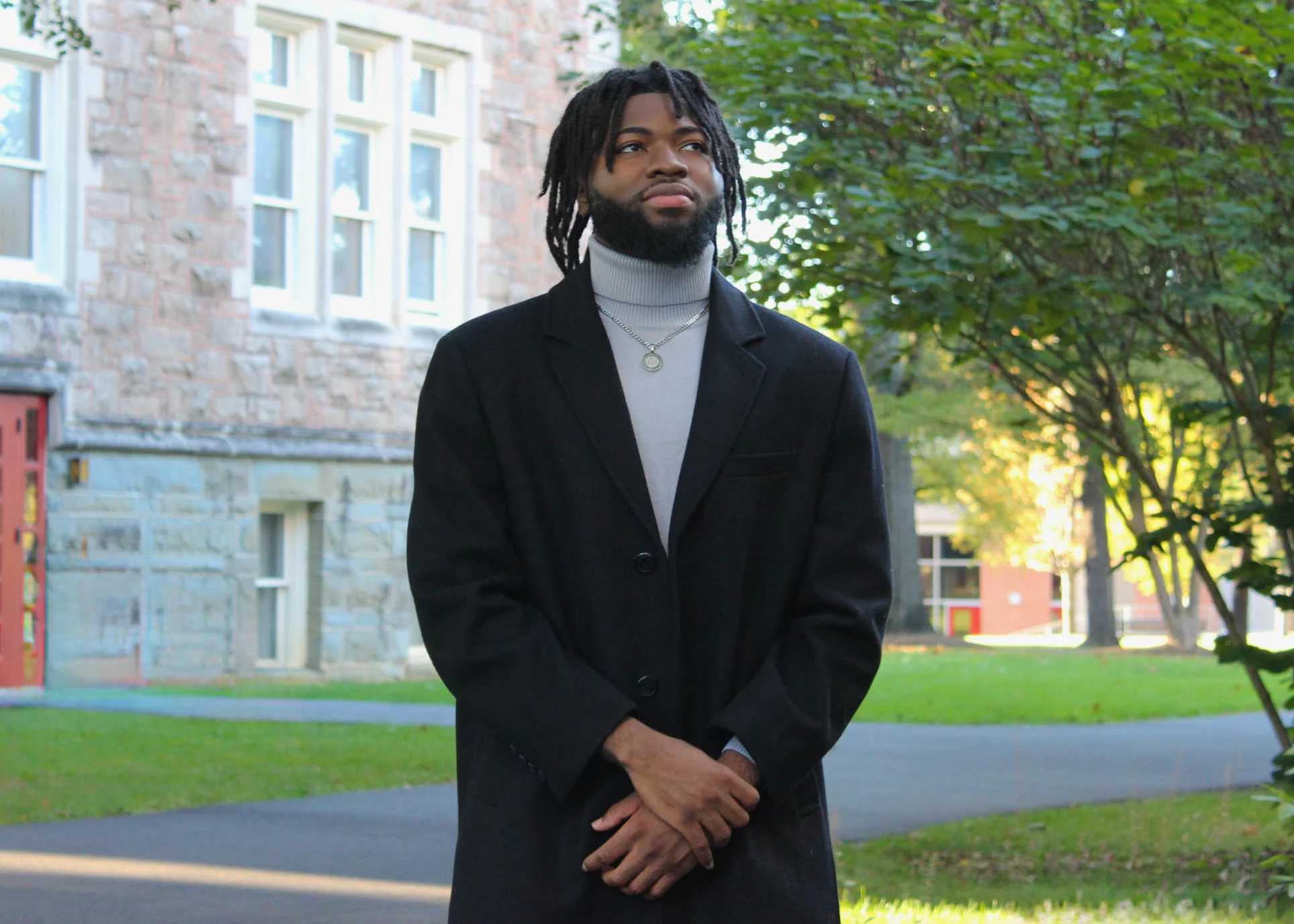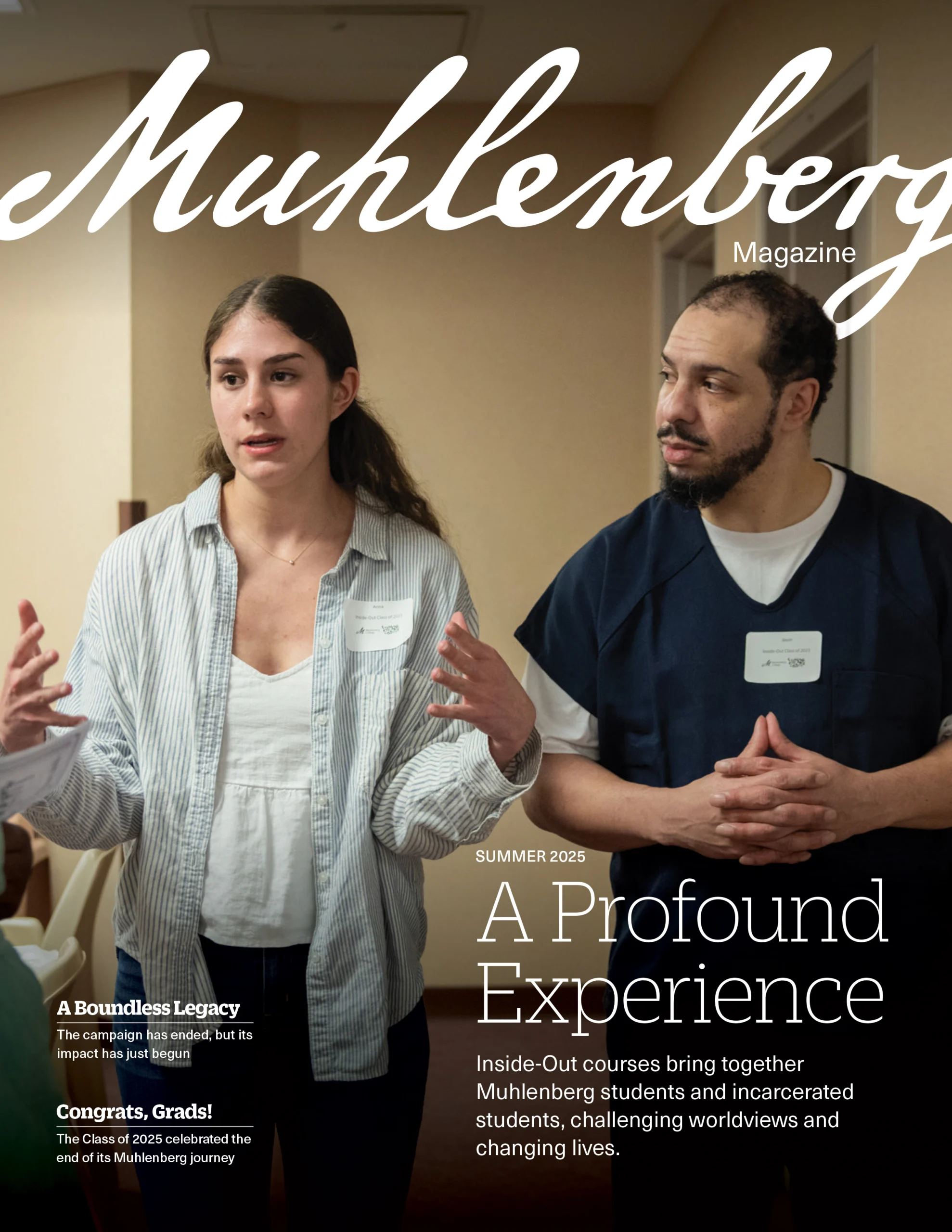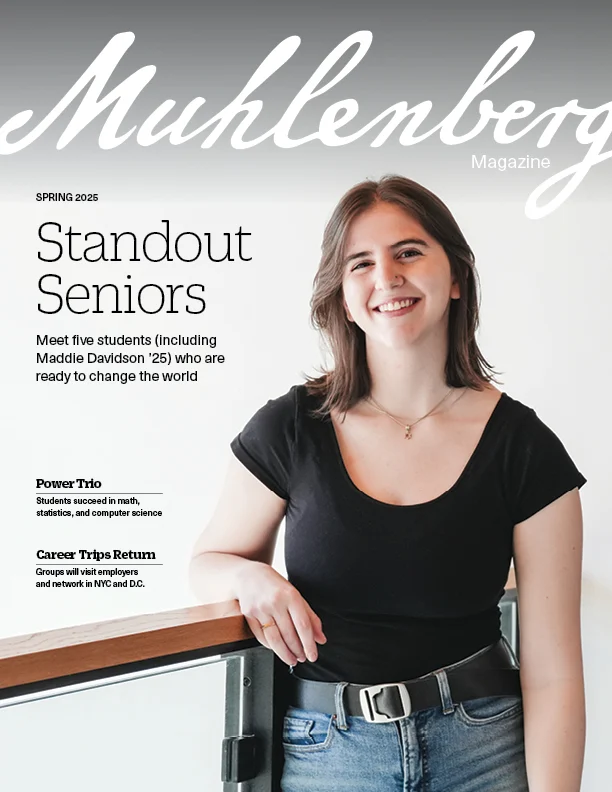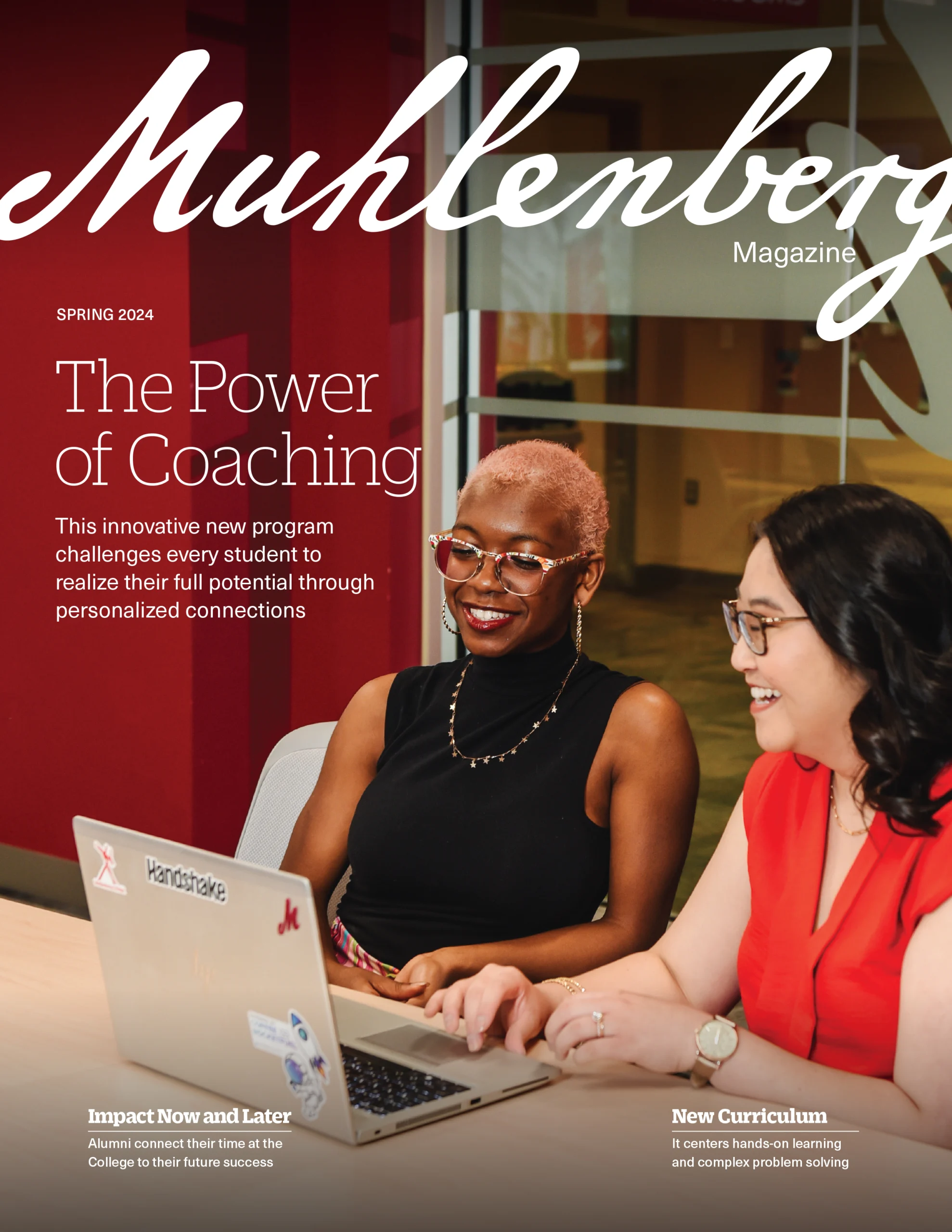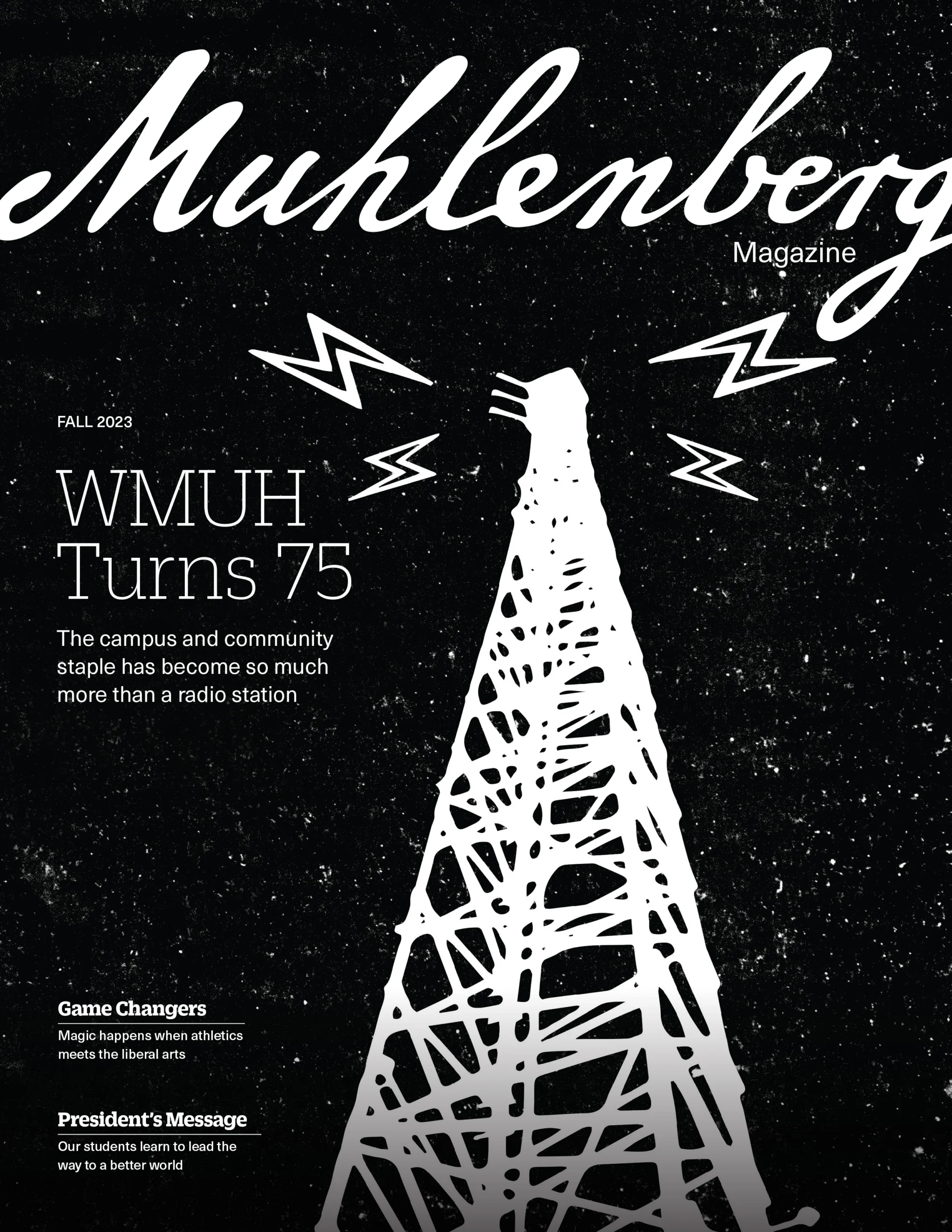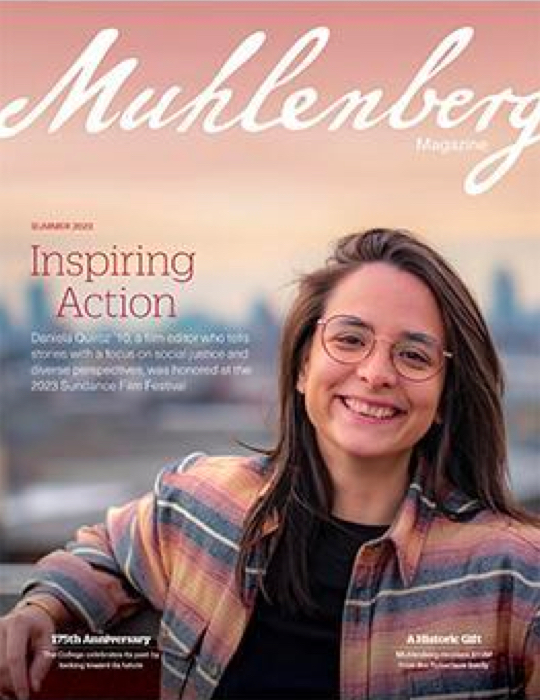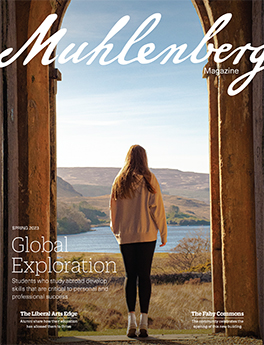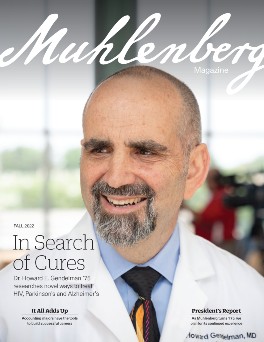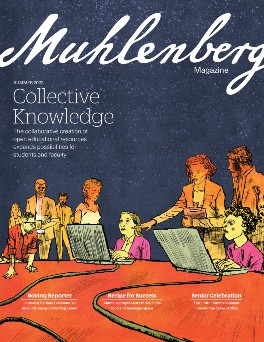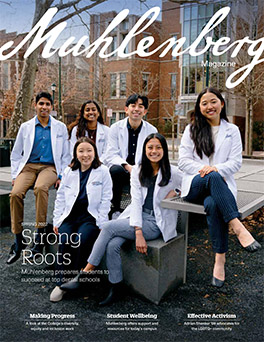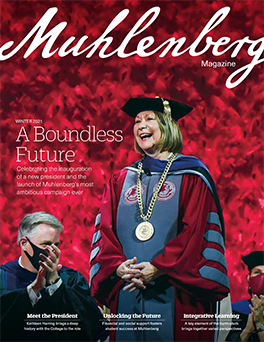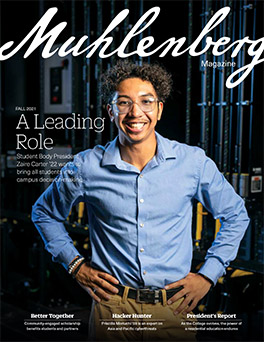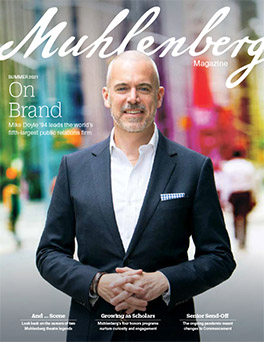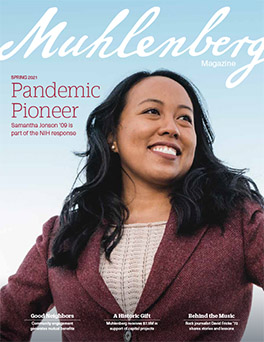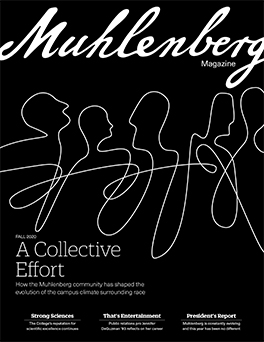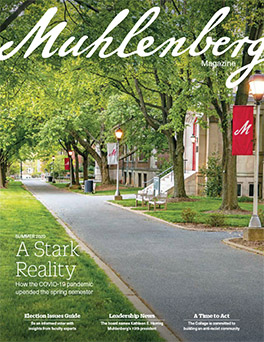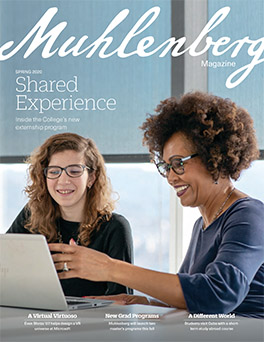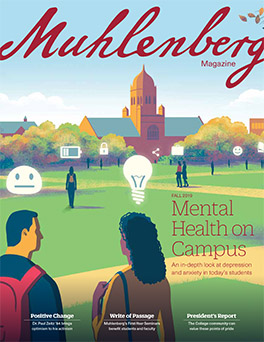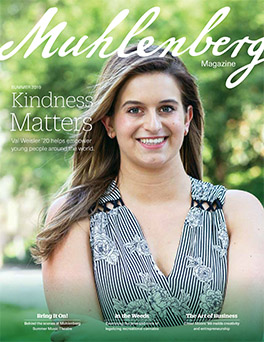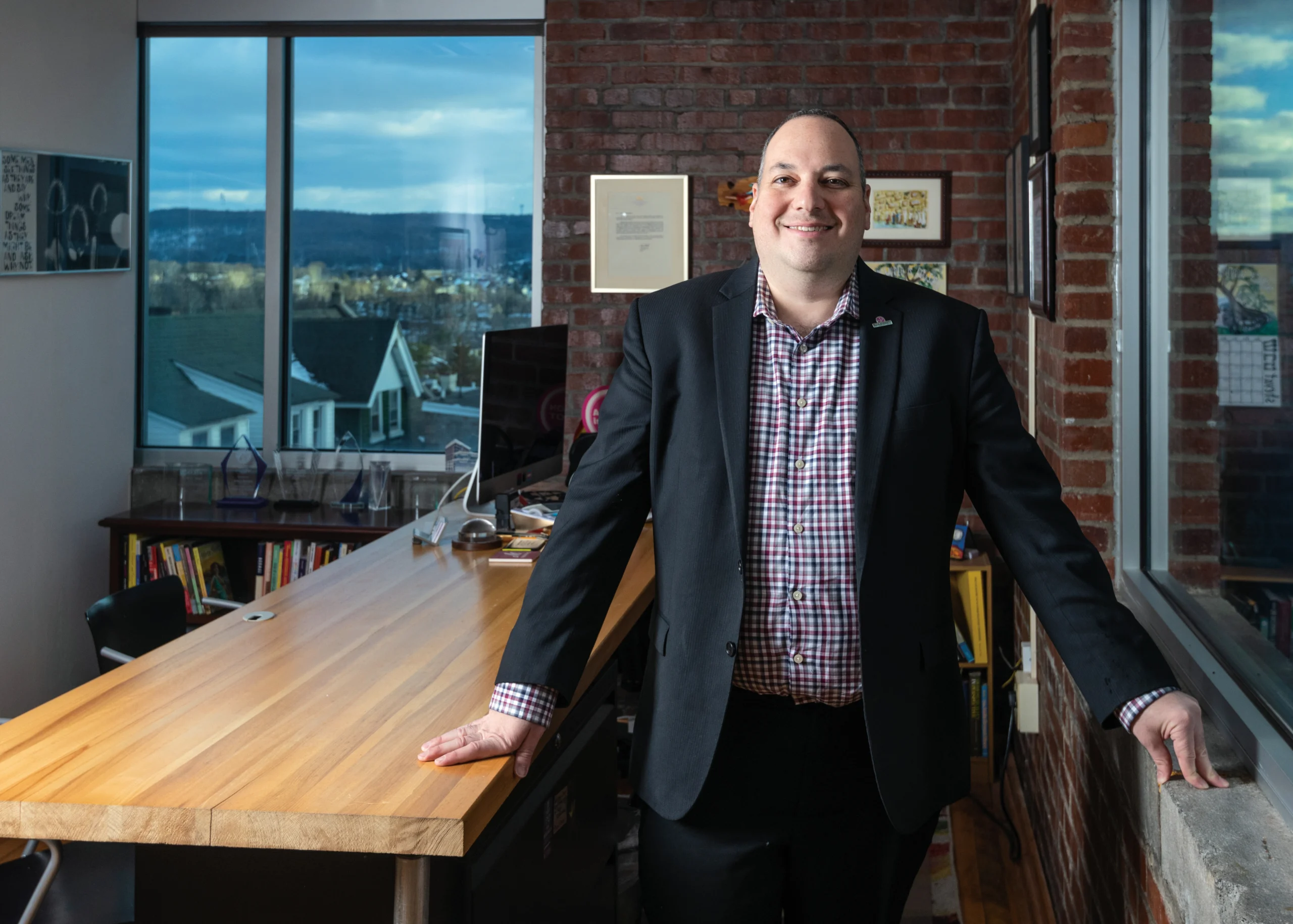
Passion and Persistence
The founder of Allentown’s Bradbury-Sullivan LGBT Community Center, Adrian Shanker ’09, continues to work to make the unmet dream of health equity for the LGBTQ community a reality in his new role at the Bay Area’s Spahr Center.
Editor’s note: In October 2022, Adrian Shanker ’09 joined the Biden-Harris administration as senior advisor on LGBTQI+ health equity in the Office of the Assistant Secretary for Health within the U.S. Department of Health and Human Services. Read more about his appointment here.
The vision for Allentown’s Bradbury-Sullivan LGBT Community Center became public in June 2014. At that time, its founder, Adrian Shanker ’09, had been living in the Lehigh Valley, home to Pennsylvania’s third largest LGBTQ population, for almost 10 years. He identified a need for a space dedicated to the LGBTQ community year-round and assembled a group of fellow activists to imagine what such a space might look like.
The campaign to launch Bradbury-Sullivan Center, named after local LGBTQ activists Liz Bradbury and Patricia Sullivan, sought to raise $75,000 in three months. Instead, it raised $115,000, mostly from small to mid-sized donations—the average individual contribution was $400. It was evidence that the local LGBTQ community supported the vision Shanker’s group had presented. In late 2015, Bradbury-Sullivan Center found a physical home, a three-story building in downtown Allentown just off of Hamilton Street. Six months later, the space opened to the public.
Today, Bradbury-Sullivan Center has nearly two dozen staff and a $1.6 million annual operating budget. It has a large community room, a youth lounge, two art galleries and a community library. It offers free programming to the local community in four areas (arts, health, youth and Pride); coordinates support groups and other supportive services; conducts organizational training and health-related research; and advocates on behalf of the LGBTQ community at the local, state and federal levels. For example, in 2020, Bradbury-Sullivan Center’s advocacy ensured that people living with HIV were prioritized to receive the COVID vaccine in Pennsylvania, and the center filed a successful lawsuit to block an executive order prohibiting diversity training for federal agencies and contractors.
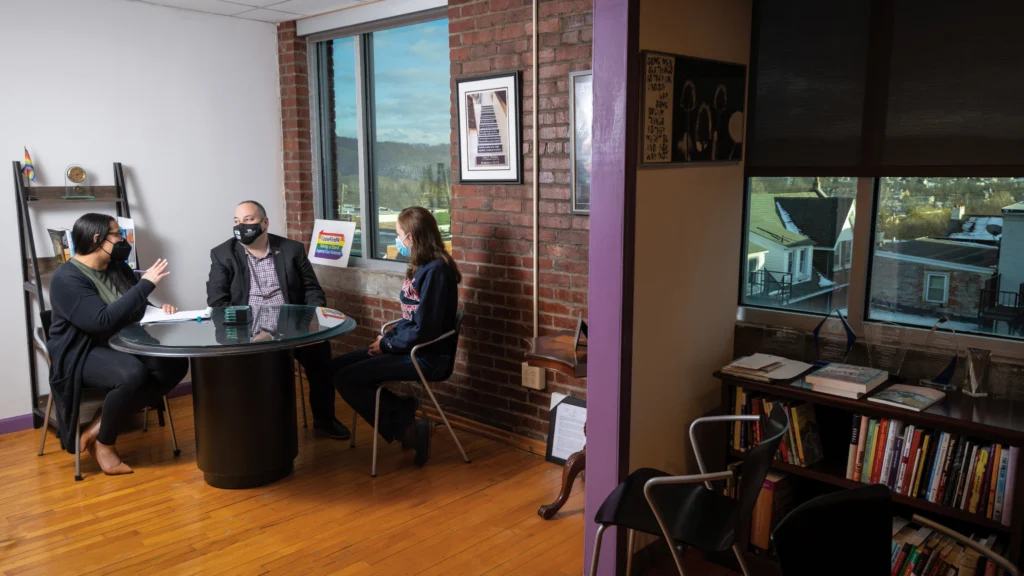
In February 2022, Shanker announced he would be stepping down as executive director of Bradbury-Sullivan Center and relocating to the Bay Area to fulfill the same role at the Spahr Center in Marin County, just north of San Francisco. Per its website, the Spahr Center “is Marin County’s only nonprofit community agency devoted to serving, supporting and empowering the lesbian, gay, bisexual and transgender community and everyone in the county living with and affected by HIV.” It’s similar in size to Bradbury-Sullivan Center but is older (founded in 1984) and is also an AIDS Service Organization. That means it offers treatment as well as harm-reduction programs, including syringe services that aren’t legal in Pennsylvania outside Philadelphia and Pittsburgh.
“As a passionate advocate for the health and wellness of LGBTQ+ and HIV communities, I am deeply motivated and beyond excited to join the team at the Spahr Center as their next executive director,” Shanker says. “The Spahr Center has a strong history of providing critical programs for Marin County’s LGBTQ+ and HIV communities, and I’m thrilled to become part of the next chapter for the Spahr Center.”
“I’m so happy to see Adrian taking on the executive director role at the Spahr Center. It’s always exciting to see a leader in the LGBTQ community center movement who has demonstrated such talent, skills and growth in their current position stay in the movement and take those attributes to another center,” says Denise Spivak, CEO of CenterLink: The Community of LGBT Centers. “Adrian has accomplished so much at Bradbury-Sullivan LGBT Community Center in Pennsylvania, and I’m really looking forward to seeing the Spahr Center continue to thrive under his leadership.”
Since 2018, Shanker has served as commissioner on the Pennsylvania Human Relations Commission (the state’s civil rights enforcement agency) and as commissioner and health committee co-chair of the Pennsylvania Commission on LGBTQ Affairs, which advises Governor Tom Wolf’s administration, roles he will relinquish as he moves out of state. Last year, he was appointed to the Presidential Advisory Council on HIV/AIDS—which “provides advice, information and recommendations to the Secretary of Health & Human Services regarding programs, policies and research to promote effective treatment, prevention and cure of HIV disease and AIDS,” according to its website—in the Biden-Harris administration.
Shanker—who edited 2020’s Bodies and Barriers: Queer Activists on Health as well as Crisis and Care: Queer Activist Responses to a Global Pandemic, out this June—has a particular passion for health equity, “the attainment of the highest quality of health for all people.”
“Without our health we don’t have our lives,” Shanker says. “Health is broad, and LGBTQ+ community centers like both Bradbury-Sullivan LGBT Community Center and the Spahr Center are perfectly situated to provide the programs and services that lead us toward the unmet dream of health equity. There are significant barriers that prevent LGBTQ+ people from accessing the care our bodies need, and community centers are simultaneously service providers and advocates for the health and wellness of LGBTQ+ people.”
Activist Roots
Shanker, who was a political science and religion studies double major at Muhlenberg, arrived at the College already an activist. His mother came out when he was 7 and when his parents divorced, his father was able to legally remarry while his mother could not. In fact, in 2004, then-President George W. Bush expressed support during the State of the Union address for a constitutional amendment to ban gay marriage. As a high-school student in Westchester County, New York, Shanker felt inspired to take action.
“That year really sparked my interest in activism—in anti-war activism, in LGBTQ activism—and it was a really pivotal moment for me to consider the role that humans can play in our society if we can get involved as activists and advocates for ourselves and for others,” Shanker says. “At first, every issue was important. Everything felt urgent. At Muhlenberg, I learned how to consolidate my activism and be a more effective activist.”
He chose to focus on LGBTQ equity because of his own identity as part of that community. Within six weeks of coming to Muhlenberg in the fall of 2005, Shanker was in then-President Randy Helm’s office asking Muhlenberg to add gender identity to its nondiscrimination policy, a change that happened six weeks later. He also led the affinity group now known as Students for Queer Advocacy in a campaign to secure gender-neutral housing on campus that lasted beyond his time at Muhlenberg. (The College began offering it in the fall of 2011 and was the first institution in the Lehigh Valley to do so.)
“Adrian was, from my first encounter with him, the very best kind of activist,” Helm says. “Well informed, reasonable, articulate, committed to his values and willing to consider questions without becoming impatient or losing his temper, he was an impressive advocate for and educator about issues that were not always clearly understood by the community.”
As a student, Shanker lobbied at the state level to oppose a constitutional amendment prohibiting gay marriage. Now that gay marriage is legal federally, he says, it’s hard to remember how different things were when he was a college student, “when same-sex marriage was on the ballot and we were losing in almost every state. It was emotionally traumatic to know how many people in America were voting against our basic civil rights.” This particular battle felt “propulsive” to him, so that’s where he focused his activist energy beyond campus.
He also got involved with the Office of Community Engagement (OCE), primarily as an escort for patients seeking care at the Allentown Women’s Center: “When students are connected to the community, they not only have a better college experience, that’s when they might consider staying in that city after they graduate,” he says. “I credit that office a lot for helping to make Allentown a place where I wanted to live.”
“Adrian was, from my first encounter with him, the very best kind of activist. Well informed, reasonable, articulate, committed to his values and willing to consider questions without becoming impatient or losing his temper, he was an impressive advocate for and educator about issues that were not always clearly understood by the community.
— Former Muhlenberg President Randy Helm
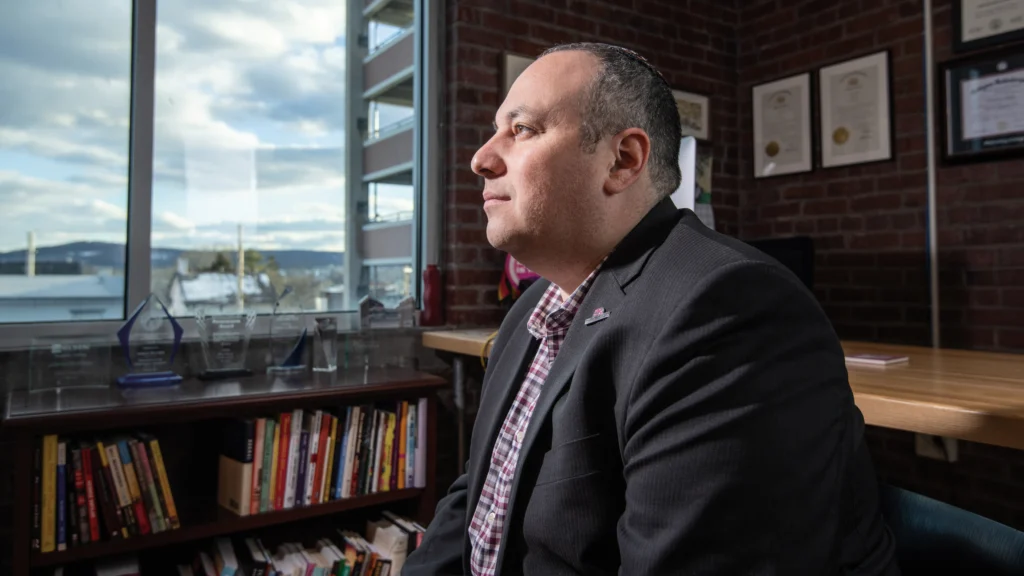
“It went from this thing where people running for office wouldn’t talk about us to non-LGBTQ audiences to a place where they would embrace the LGBTQ community.”
— Adrian Shanker ’09
Building Skills and Momentum
Shanker stayed in Allentown after graduation, working in development for the Civic Theatre. He learned how to raise money there, a critical skill-set for anyone interested in nonprofit work, but he missed activism. Then, he worked as a union organizer, and while he found it rewarding, he realized he missed LGBTQ activism, specifically.
That’s when he became president of Equality Pennsylvania, a nonprofit dedicated to securing LGBTQ rights in the state. During his three years with the organization, it advocated for (and won) a number of municipal nondiscrimination protections across the state and helped change the conversation about political support for LGBTQ people.
“It went from this thing where people running for office wouldn’t talk about us to non-LGBTQ audiences to a place where they would embrace the LGBTQ community,” he says.
After his three years with Equality Pennsylvania, Shanker had a strong network of LGBTQ activists and allies locally and at the state level as well as experience with organizing and fundraising. He had long seen the need for a community center for the LGBTQ population in the Lehigh Valley. Other Pennsylvania regions, including some with smaller LGBTQ communities, had them, and while the area had Pride and other one-off events, there wasn’t a central hub for year-round programming.
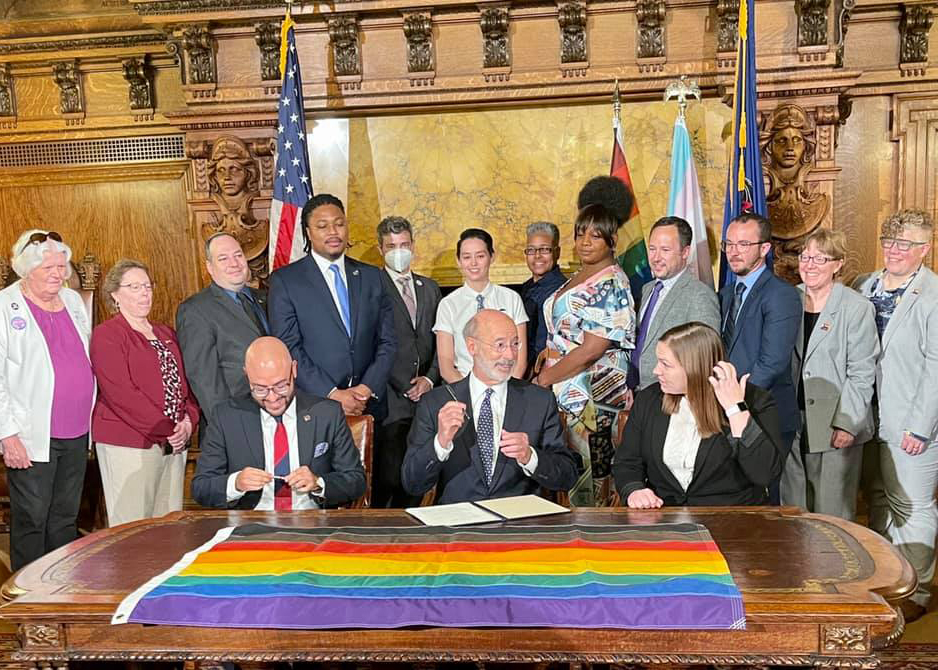
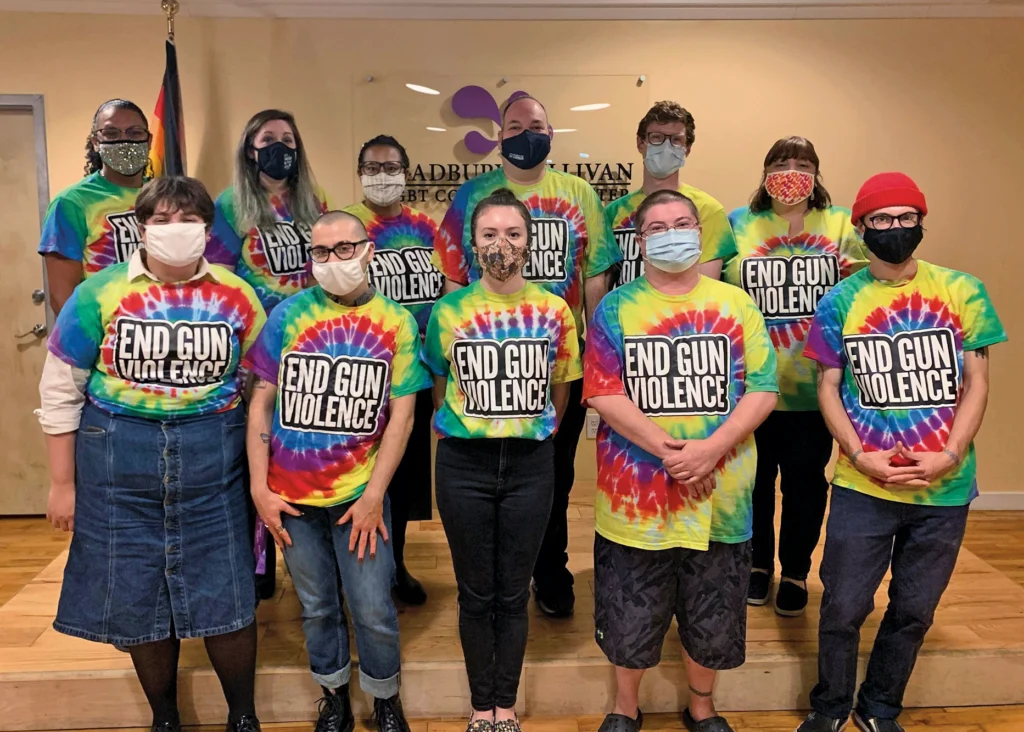
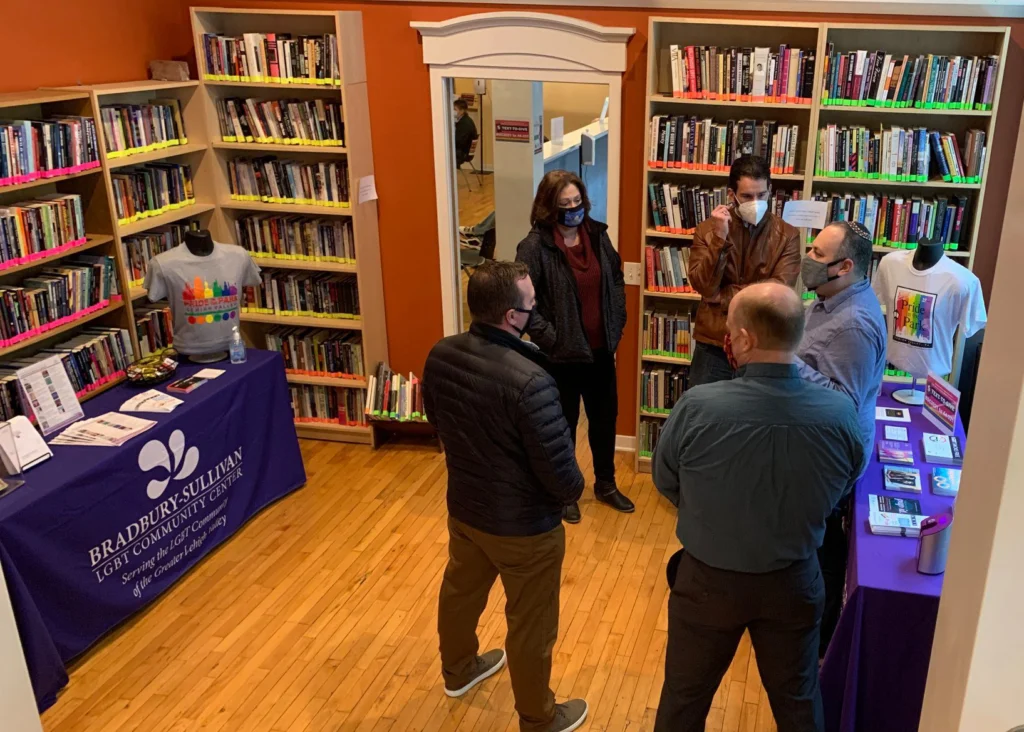
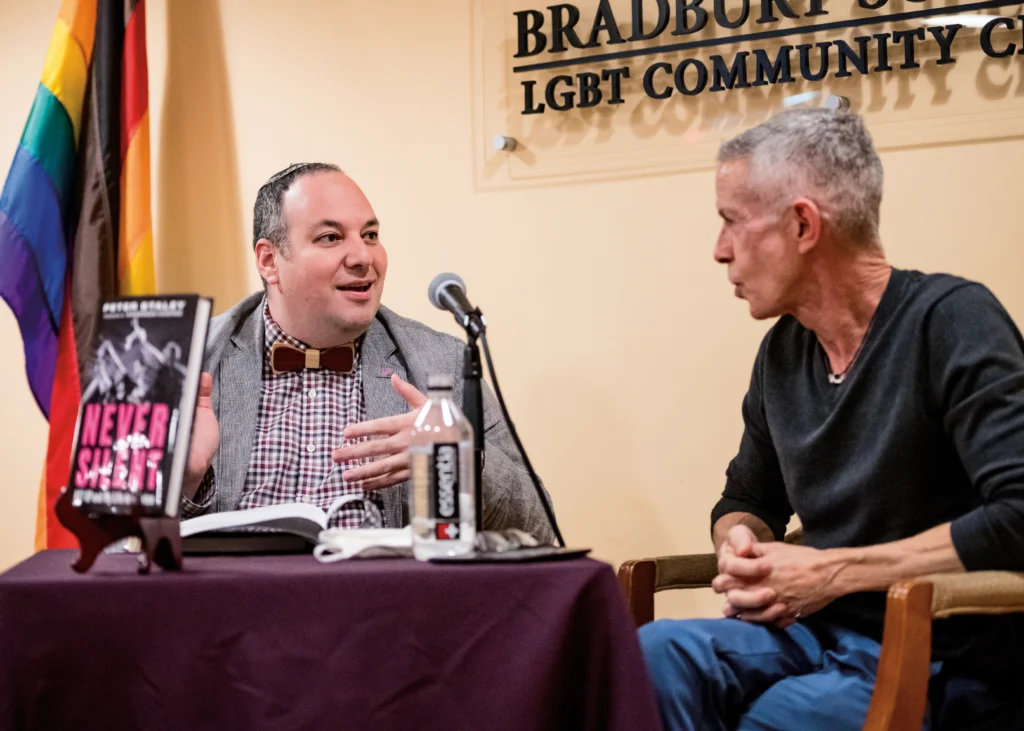
Purpose-Driven Work
That’s what Bradbury-Sullivan LGBT Community Center became, and more. In 2021, it served more than 10,000 community members. It offered three monthly arts and culture groups and 22 free arts and culture programs, a mix of in-person, virtual and hybrid. (A lesson from the pandemic, Shanker says, is the importance, from an accessibility standpoint, of offering virtual and hybrid programming.) It hosted flu and COVID-19 vaccine clinics; provided free testing for COVID-19, HIV and hepatitis C; and supported individuals seeking to access health-care and legal services. It offered approximately 15 monthly community and support groups and served 233 LGBTQ youth through Project Silk Lehigh Valley, a collaboration with the nonprofit Valley Youth House, which provides shelter and programming for young people in the region. It hosted the 2021 Lehigh Valley Pride celebration on the grounds of the Jewish Community Center of the Lehigh Valley, an outdoor event that drew about 4,000 people.
Bradbury-Sullivan Center’s reach extends beyond the local community as well. The center administers Pennsylvania’s biannual LGBTQ Health Needs Assessment, which collects data on diet and exercise, substance use, mental and sexual health and health-care experiences. In spring of 2021, it also administered a state-wide survey on COVID-19 vaccine hesitancy among LGBTQ Pennsylvanians. The Training Institute at Bradbury-Sullivan Center offers cultural competency training, policy development assistance and other services for a variety of organizations including health-care providers, schools and government agencies.
“There’s something really powerful about purpose-driven work. It’s different from working for a paycheck. You’re working for a mission.”
— Adrian Shanker ’09
Shanker has also remained connected to his alma mater. He has co-instructed an integrative learning course, Media Advocacy, with Professor of Media & Communication Susan Kahlenberg three times. In one past iteration of the course, teams of students produced radio PSAs to promote the free HIV/STI testing offered at the center. Bradbury-Sullivan Center partners with the OCE to engage student interns and volunteers, and with Trexler Library to maintain the Lehigh Valley LGBT Community Archive, a repository of material documenting the history of LGBTQ+ activism in the region.
Shanker is proud of his time at Bradbury-Sullivan Center and has confidence in its board and staff to carry its mission forward in his absence. He looks forward to joining the Spahr Center and working toward preventing new cases of HIV, eliminating the health disparities that shorten LGBTQ+ lives and providing the cultural support that ensures LGBTQ+ people and people living with HIV can thrive. The new community comes with new opportunities and new challenges, but Shanker’s work will still happen in service of the LGBTQ+ community and the unmet dream of health equity.
“There’s something really powerful about purpose-driven work,” Shanker says. “It’s different from working for a paycheck. You’re working for a mission.”

